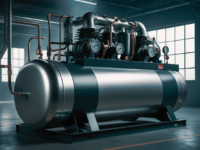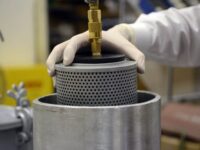Most high-performance server OEMs, including Lenovo , recommend continuous oversight of system coolant properties such as conductivity, pH, corrosion rate, and turbidity to ensure optimal performance and longevity of HPC systems.Turbidity testing for cold plate cooling systems, in particular, is crucial. Elevated turbidity levels can signal the presence of particulates or contaminants that may impair…
Read more






